Construction Machinery Parts Suppliers: Expert Selection Guide
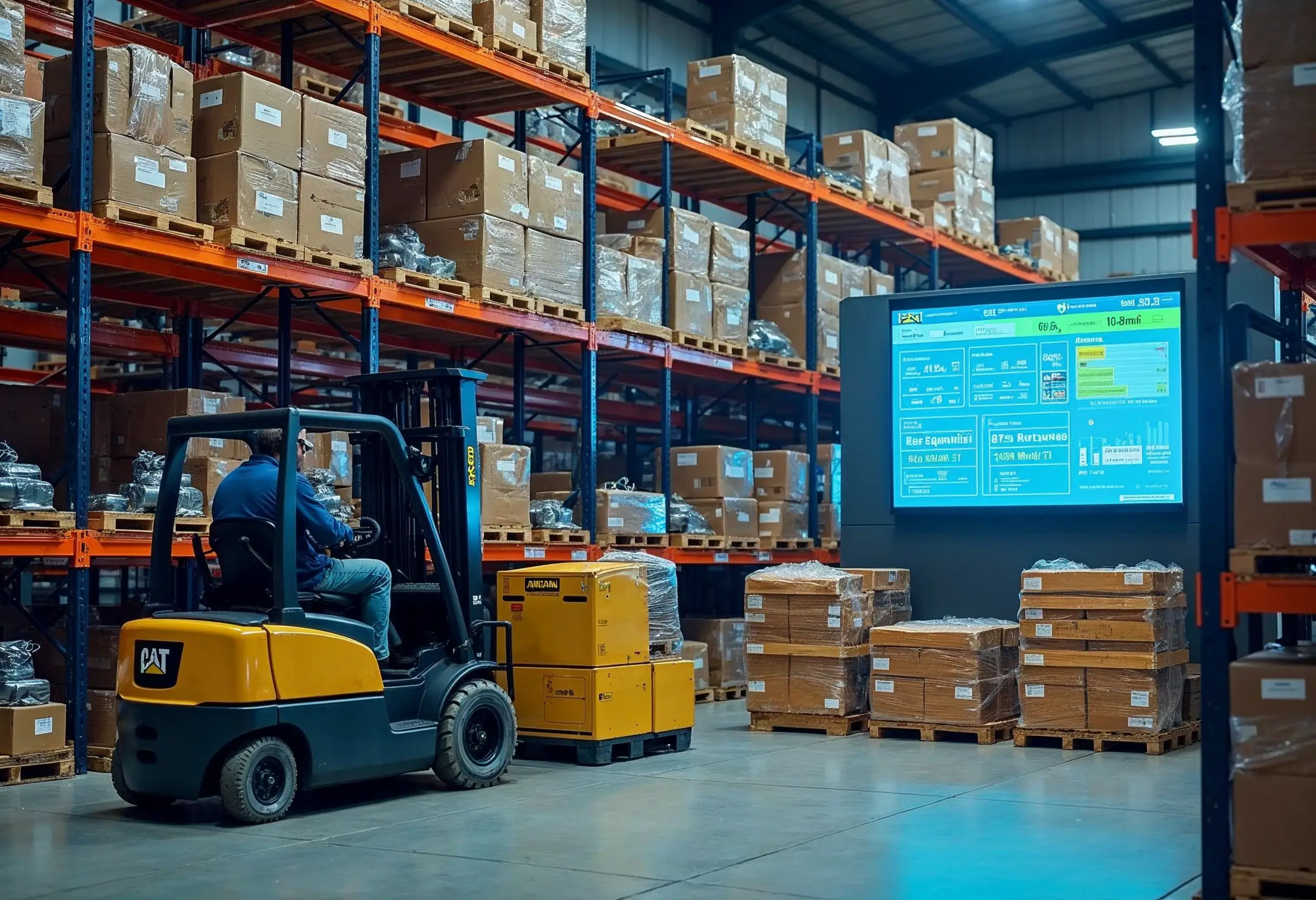
Fuel costs make up 30-50% of your construction machinery's operating expenses. Yet machinery parts and maintenance decisions carry equal weight in your operational budget. The choice between OEM parts and aftermarket alternatives shapes both immediate costs and long-term equipment reliability. Effective procurement strategies in the construction industry are crucial for maintaining operational efficiency and controlling expenses.
Poor supplier selection leads directly to:
- Frequent equipment failures
- Extended operational downtime
- Escalating repair costs
- Lost productivity
Your parts supplier becomes a crucial operational partner. Quality components, rapid shipping, responsive service, and straightforward returns policies determine your fleet's performance and lifespan. Implementing robust supplier relationship management practices is essential for ensuring consistent quality and service.
This guide examines key supplier evaluation criteria, from technical expertise in machinery to service standards. You'll discover proven methods to evaluate potential partners and protect your equipment investments through informed sourcing decisions and effective procurement strategies.

Essential Supplier Selection Criteria
Studies project aftermarket parts in construction to reach USD 1126.00 million by 2025, growing at 8.37% annually from 2020-2025. Your supplier selection directly impacts equipment reliability, operational costs, and project timelines. Understanding the nuances of procurement in the construction industry is vital for making informed decisions.
Technical Expertise
Quality suppliers demonstrate mastery in engineered components manufacturing for construction and industrial equipment. Your supplier must maintain ISO9001/2015 certification and follow ASTM, AWS, or EN specifications. These standards ensure peak machinery performance optimization across your fleet operations.
Your technical evaluation should examine:
- Safety-critical fabrication capabilities
- Component quality standards
- Production efficiency metrics
- Cost-effective manufacturing processes
- Adherence to safety standards in production

Parts Inventory Range
Equipment scan tools reveal that unplanned downtime costs USD 250.00K per hour. Your supplier's parts inventory becomes crucial for preventing these losses. Studies show 70% of operations lack proper maintenance timing awareness. Effective inventory management for construction parts is essential for minimizing downtime and maintaining operational efficiency.
Key inventory factors include:
- Filters, oils, and wear components availability
- Same-day shipping options
- Supply chain resilience
- Customer support capacity
Your supplier should stock:
- OEM parts for major construction machinery brands
- Aftermarket alternatives from reputable aftermarket suppliers
- Safety-critical components
- Line-ready assemblies with documentation
The best suppliers maintain comprehensive inventories for equipment like:
- Caterpillar machinery
- John Deere equipment
- Bobcat units
- Multiple industrial equipment brands and models
Every minute of equipment failure costs money. MCH Parts provides high-quality OEM and aftermarket parts with fast shipping and expert support to keep your fleet running. Find the Right Parts Now.

Supplier Support Services Analysis
Your equipment's operational success depends heavily on supplier support capabilities. Studies show proper support services reduce equipment downtime by 30% while improving construction equipment maintenance efficiency by 25%.
Emergency Response Time
Your site operations demand rapid equipment failure response. Professional suppliers deploy mobile machinery repair services within hours. These units carry essential diagnostic tools, generators, and welding equipment for immediate repairs.
Field technicians provide:
- On-site equipment scan tool diagnostics
- Critical replacement parts
- Emergency repair solutions
Service response speed varies with location and service contract terms. Contract holders receive priority attention, minimizing costly project delays.
Technical Documentation
Your parts management requires precise documentation systems. Digital platforms centralize critical information, enabling team collaboration. These systems streamline data sharing across maintenance crews and facilitate technology integration for improved efficiency.
Documentation must include:
- Component specifications
- Installation guides
- Service schedules
- Quality certificates

Training Programs
Your maintenance team's expertise grows through supplier training programs. Modern platforms combine online modules, equipment simulators, and hands-on instruction. Training covers:
- Equipment diagnostics
- Preventive service procedures
- Safety requirements
- Problem resolution methods
Regular skill updates ensure optimal equipment performance. Professional development enhances technician capabilities, reducing repair frequency and costs.
Parts Authentication Verification
Can your equipment scan tools detect counterfeit components? Studies show fake parts cause 30% of critical equipment failures. Your machinery's performance and safety depend on proper parts authentication and quality control in parts supply.

Certification Standards
Your caterpillar diagnostic tool readings mean nothing without genuine parts. Modern suppliers use unique IDs and QR codes for instant smartphone verification. These systems protect your warranty claims through distribution tracking and ensure parts compatibility analysis.
Authentication features include:
- UV-coated security holograms
- Cast manufacturer logos
- Tamper-evident packaging
- Digital verification platforms
The 2020 National Electrical Code® mandates clear identification of reconditioned equipment. Original listing marks must be removed to prevent misidentification and ensure safety compliance.
Quality Testing Protocols
Your bobcat scan tool results depend on genuine part performance. Professional suppliers conduct rigorous testing to ensure quality assurance, durability, and compatibility:
- Coordinate measuring machines (CMM) verify dimensions
- Ultrasonic scans detect hidden flaws
- Magnetic particle tests reveal surface issues
Quality verification includes:
- Visual defect inspection
- Material hardness testing
- Surface finish measurement
- Tensile strength evaluation
Trusted manufacturer partnerships prevent counterfeit heavy machinery components from entering supply chains. These relationships guarantee consistent quality across your equipment components.
Choosing the right parts supplier impacts your fleet’s performance and operational costs. MCH Parts specialists help you source certified components and optimize your procurement strategy. Request a Free Consultation.

Long-term Supplier Relations
Studies show strong supplier partnerships reduce operational costs by 25% while improving parts availability by 40%. Professional relationships extend beyond basic transactions to create lasting operational advantages and support sustainable procurement practices.
Communication Systems
Clear protocols prevent costly misunderstandings in supplier partnerships. Setting up dedicated communication protocols aligns project requirements and delivery expectations. Modern communication platforms include:
- Real-time document sharing systems
- Order tracking software
- Status update meetings
Performance Assessment
Quality standards depend on systematic supplier evaluation. Effective monitoring tracks delivery times, material quality, and contract compliance. Professional assessment measures:
- Supply chain reliability metrics
- Emergency response capabilities
- Quality control benchmarks
- Specification adherence rates
Regular evaluations highlight improvement opportunities and strengthen operational efficiency. Market research and vendor management practices can further enhance the assessment process.

Contract Framework
Strategic agreements protect equipment investments through clear expectations. Contract negotiations focus on balanced stakeholder benefits. Essential elements include:
- Service Level Agreements defining quality standards
- Payment terms and schedules
- Warranty coverage
- Emergency response provisions
Annual contract reviews maintain relevance as operations evolve. Reviews enable:
- Price structure updates
- Delivery timeline adjustments
- Service requirement modifications
- Partnership enhancement
Conclusion
Professional parts suppliers deliver 20% lower maintenance costs and 30% less equipment downtime. Quality partnerships combine technical expertise, strategic inventory management, robust support services, and authenticated components through proven verification protocols.
Strategic supplier selection yields measurable results:
- 15% improved machinery availability
- 40% reduction in equipment theft risk
- 25% enhanced operational efficiency
- 30% faster emergency response times
Equipment scan tools and diagnostic software maximize these benefits through data-driven maintenance decisions. Suppliers offering mobile repair units, detailed technical documentation, and professional training programs protect fleet investments while building team capabilities.
The John Deere code reader showing error messages today could mean costly repairs tomorrow. Careful supplier evaluation using proven criteria ensures consistent project delivery and equipment reliability. Implementing effective sourcing strategies and negotiation strategies can further enhance your procurement process.
Need expert guidance on machinery parts sourcing? Contact MCH Parts for a free consultation on optimizing your supply chain with reliable partners and implementing effective procurement strategies for long-term partnerships in the construction industry.
FAQs
Q1. What are the key factors to consider when choosing a construction machinery parts supplier? When selecting a supplier, focus on their technical expertise in machinery, inventory range, support services, parts authentication processes, and willingness to build long-term partnerships. Look for suppliers with industry certifications, a diverse product range, quick emergency response times, and robust quality control measures.
Q2. How important is a supplier's inventory range? A supplier's inventory range is crucial as it directly affects their ability to meet your equipment needs. Choose suppliers offering a comprehensive selection of parts for various construction and industrial equipment makes and models. This ensures quick access to common parts and critical components, minimizing costly downtime.
Q3. What support services should I expect from a quality parts supplier? Quality suppliers should offer emergency machinery repair services, comprehensive technical documentation, and training resources. Look for suppliers with mobile repair services, centralized data environments for easy access to parts information, and diverse training options to enhance your team's expertise in construction equipment maintenance.
Q4. How can I verify the authenticity of construction machinery parts? Authentic parts can be verified through certification processes and quality testing methods. Look for suppliers using advanced tracking systems with unique IDs or QR codes, anti-counterfeit markers, and professional packaging. Reputable suppliers also employ rigorous testing procedures like dimensional accuracy tests and material property verification to ensure quality assurance and durability.
Q5. Why is building long-term relationships with suppliers important? Long-term supplier relationships offer benefits beyond mere transactions. They ensure seamless operations, reduce costs, and provide reliable support throughout your projects. Focus on establishing clear communication channels, implementing performance monitoring systems, and negotiating balanced contract terms to foster strong partnerships and improve overall vendor management in your construction equipment procurement process.
Read More

Top Hydraulic Components for Agricultural Equipment in 2025: Complete Guide
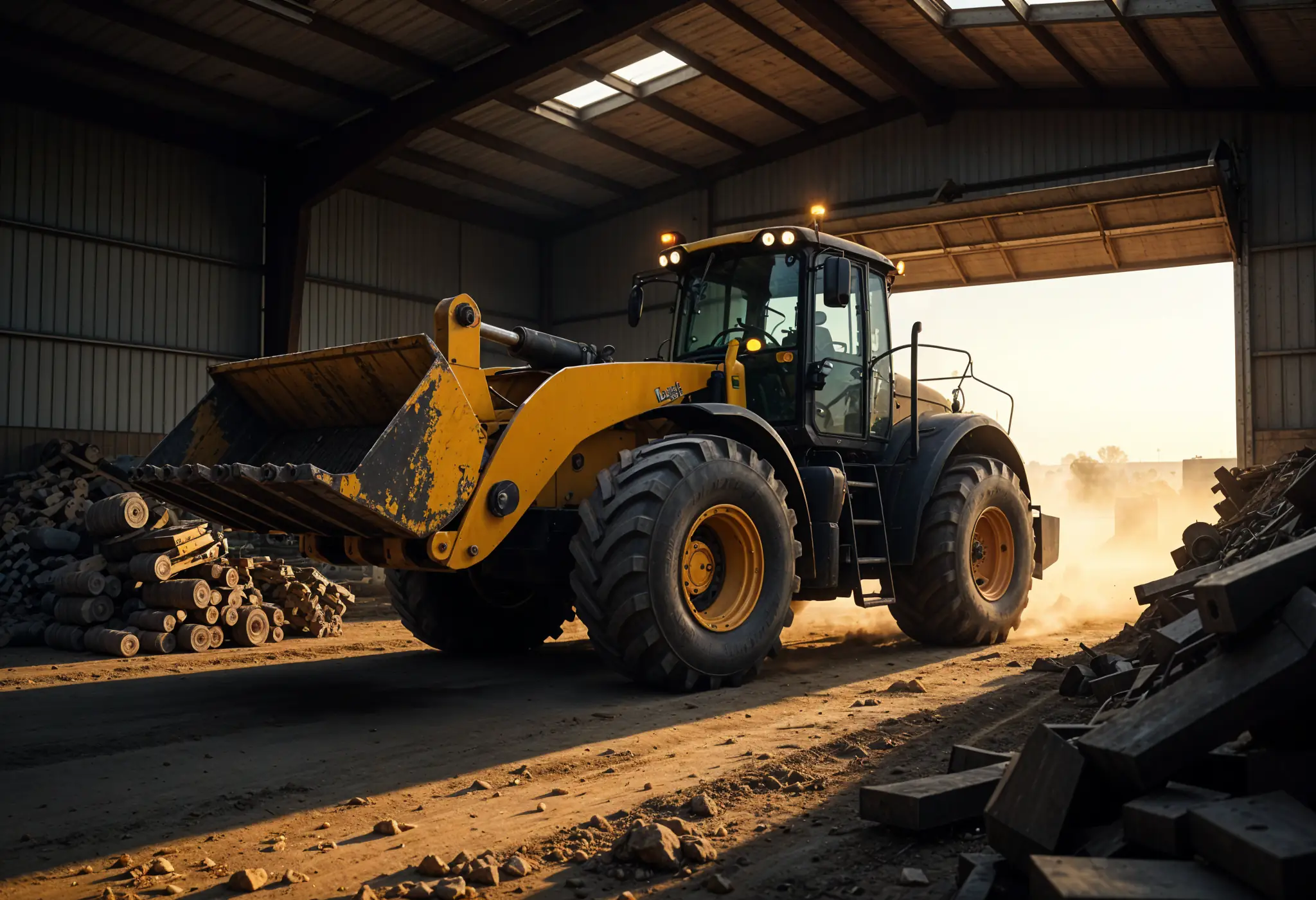
The Essential Farm Equipment Parts You Can't Afford to Run Out Of

How to Service Farm Equipment: A Farmer's Guide to Zero Harvest Downtime

Construction Machinery Parts Suppliers: Expert Selection Guide
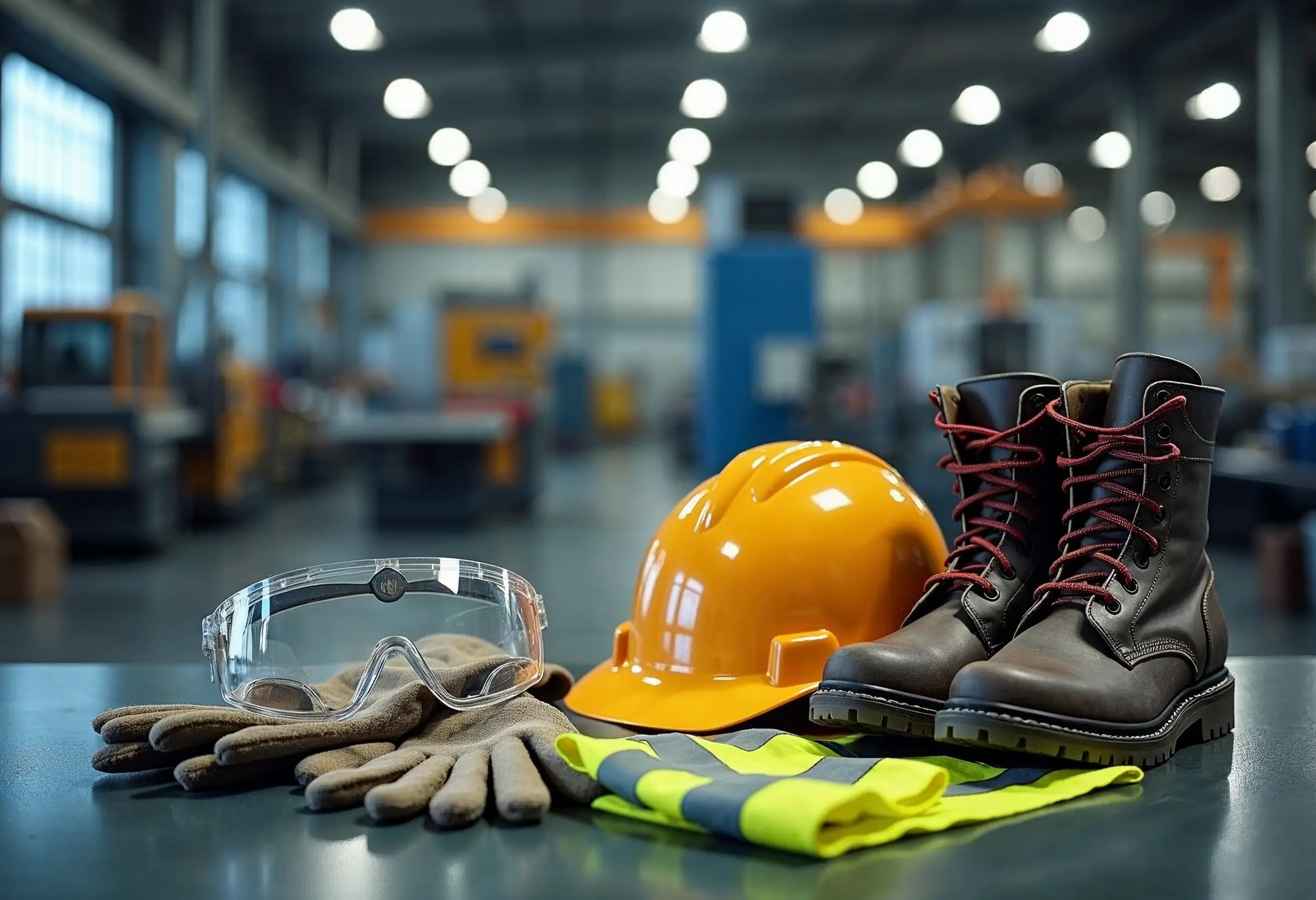
How to Apply Machine Safety Rules: From Selection to Installation

Smart Diagnostics Cut Heavy Equipment Failures by 73%

5 Ways to Assess the Environmental Impact of Heavy Construction Machinery
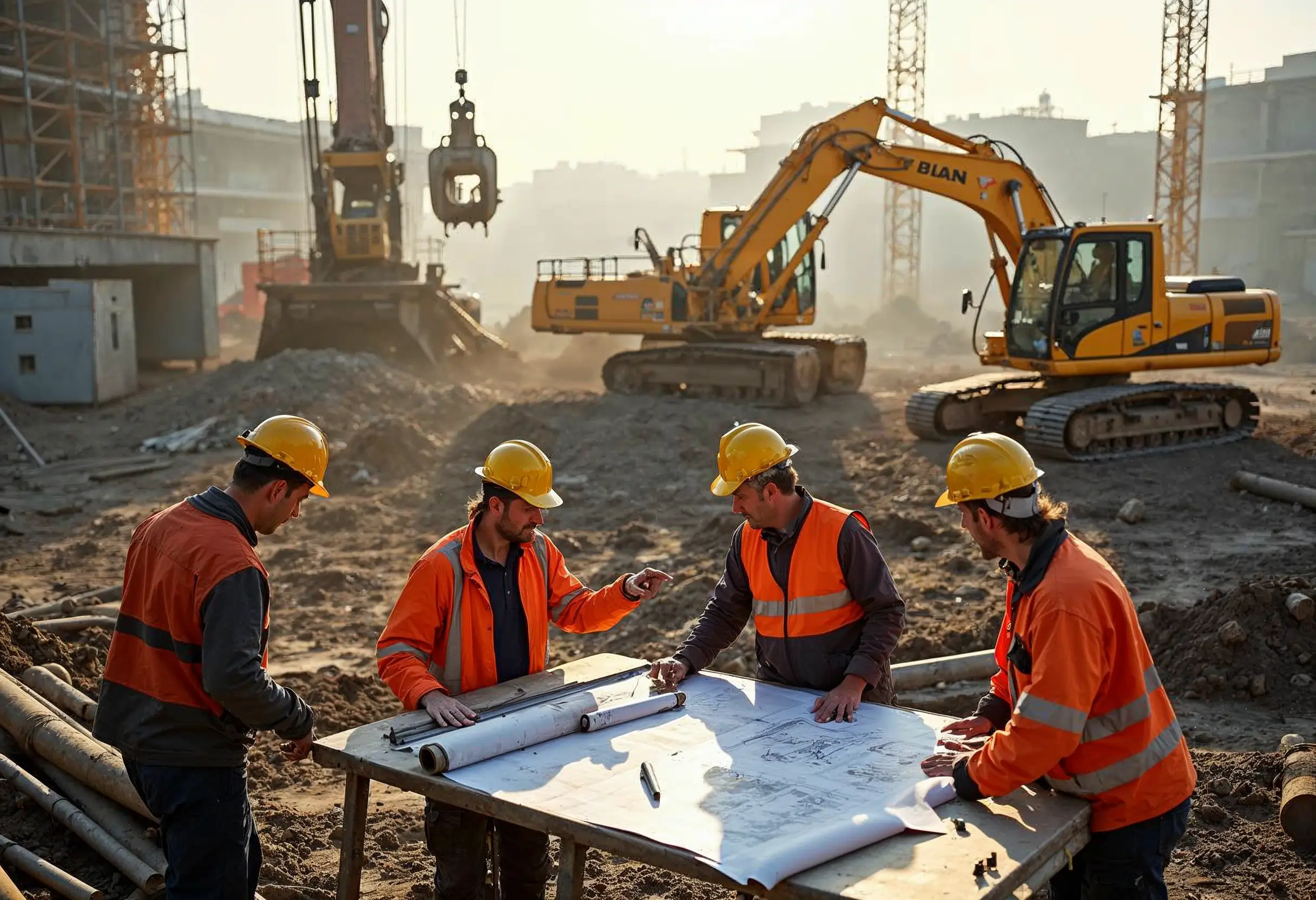
10 Smart Ways to Pick Construction Machinery for 2025 Projects
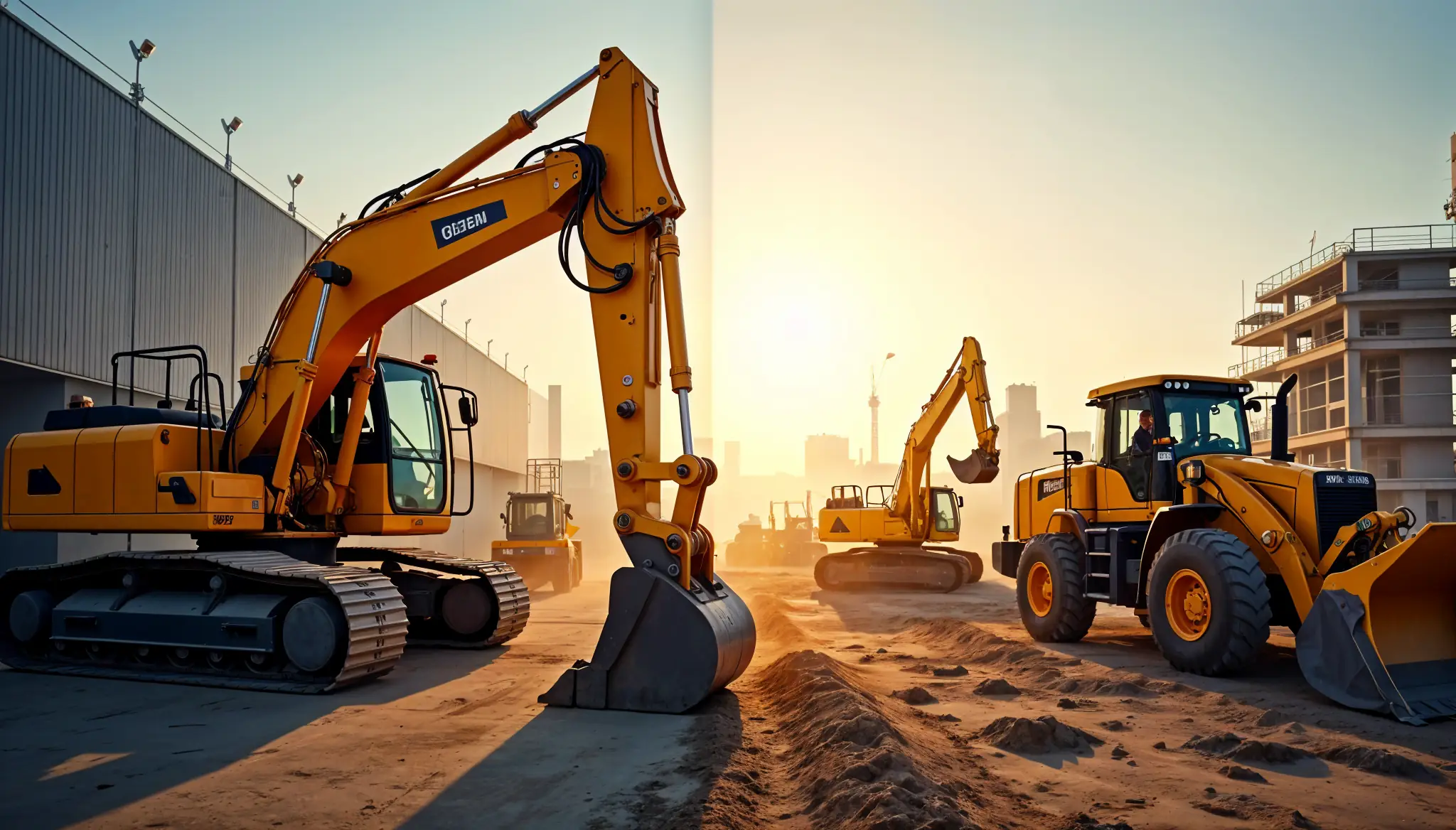
Rent vs Purchase Equipment: What Heavy Industry Experts Hide

How to Implement a Construction Inventory Management System for Equipment Efficiency

How to Extend Equipment Life Expectancy with Regular Maintenance
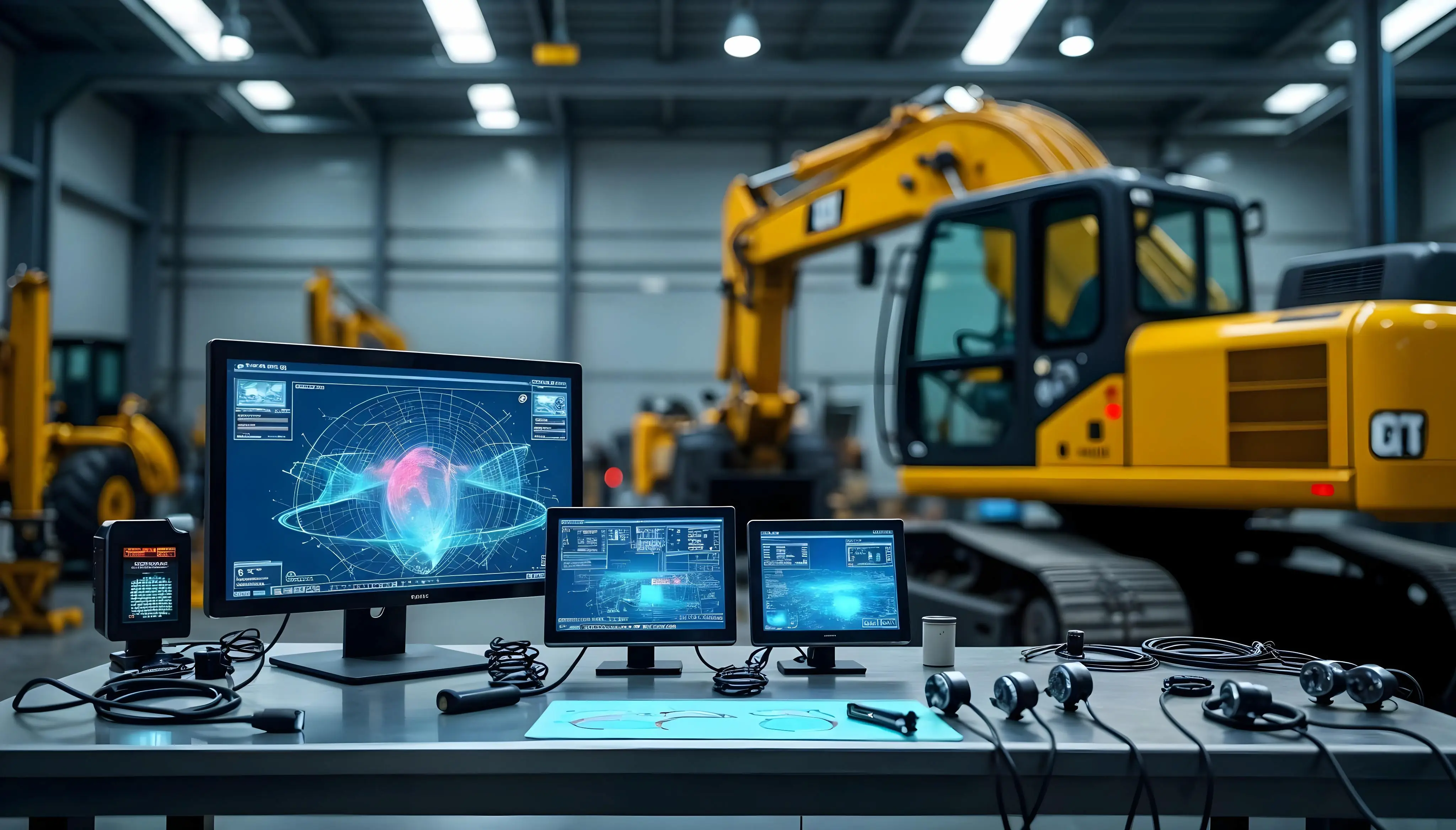
Advanced Heavy Equipment Diagnostic Tools: Ensuring Construction Machinery Quality
Essential Features Your Construction Equipment Inventory System Needs
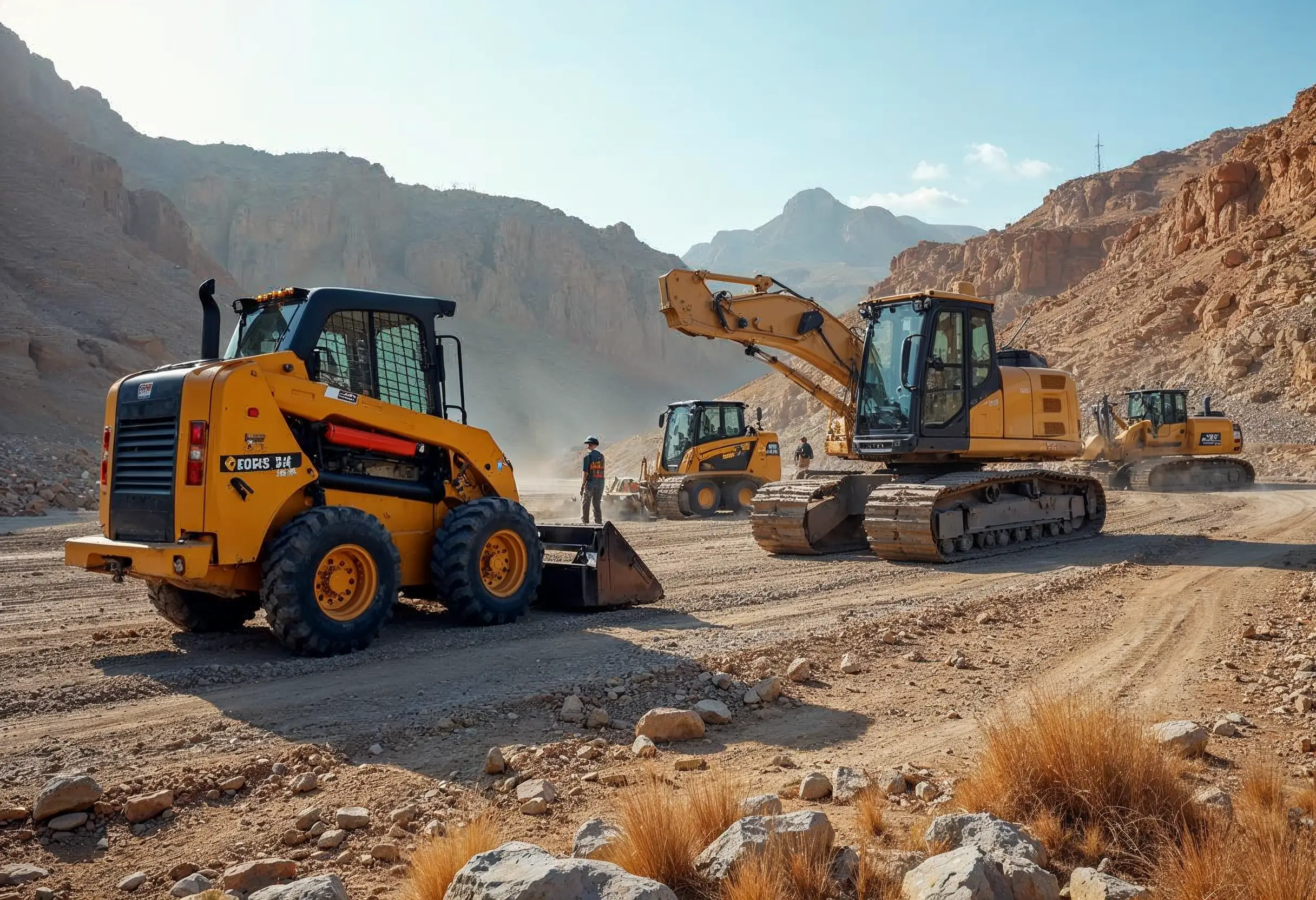
29 Quick Tips for Choosing Construction Equipment for Remote Locations

How to Select Construction Machinery with Optimal Equipment Maintenance in Mind
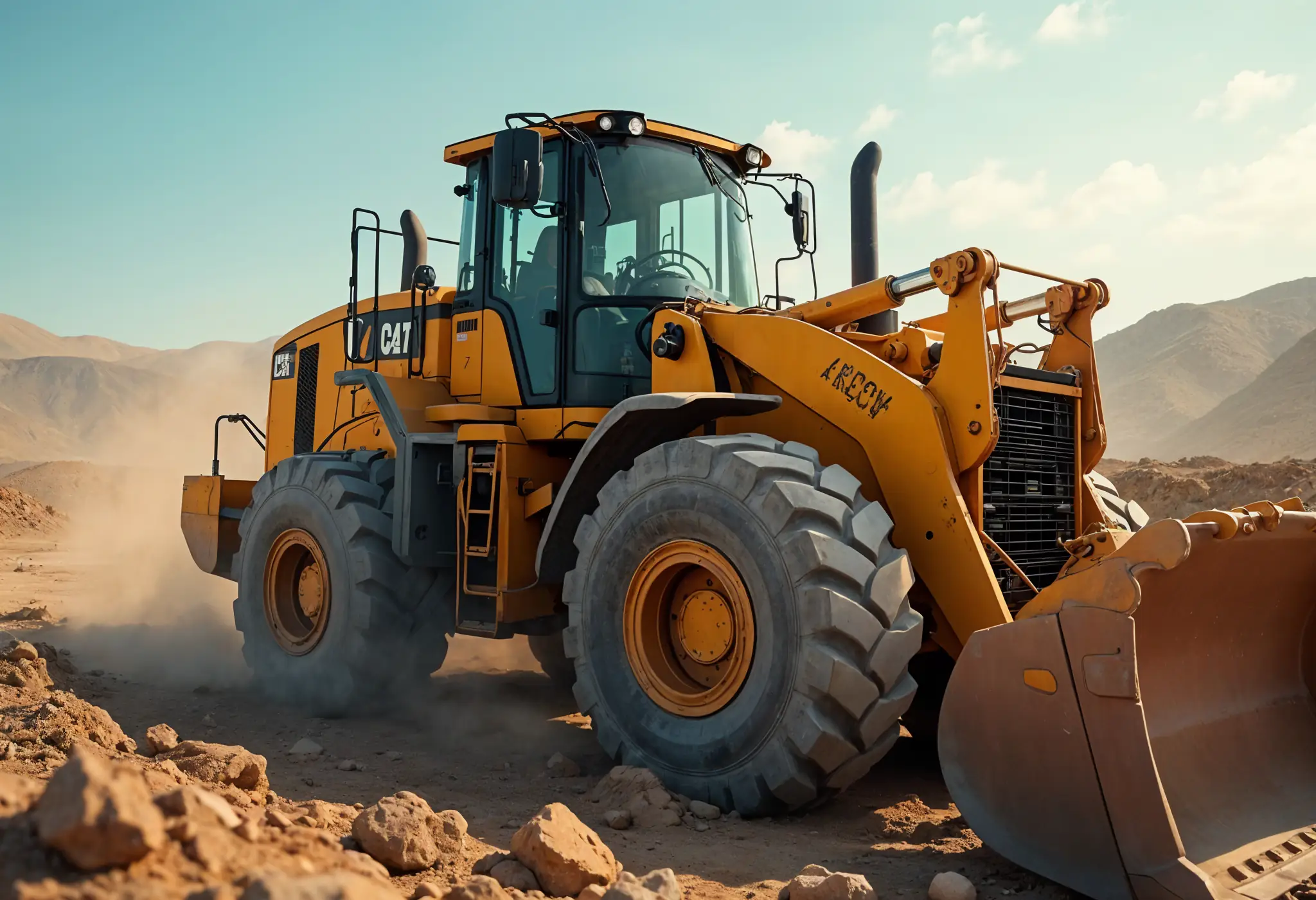
Top 25 Tips for Selecting Bulldozers for Construction Sites
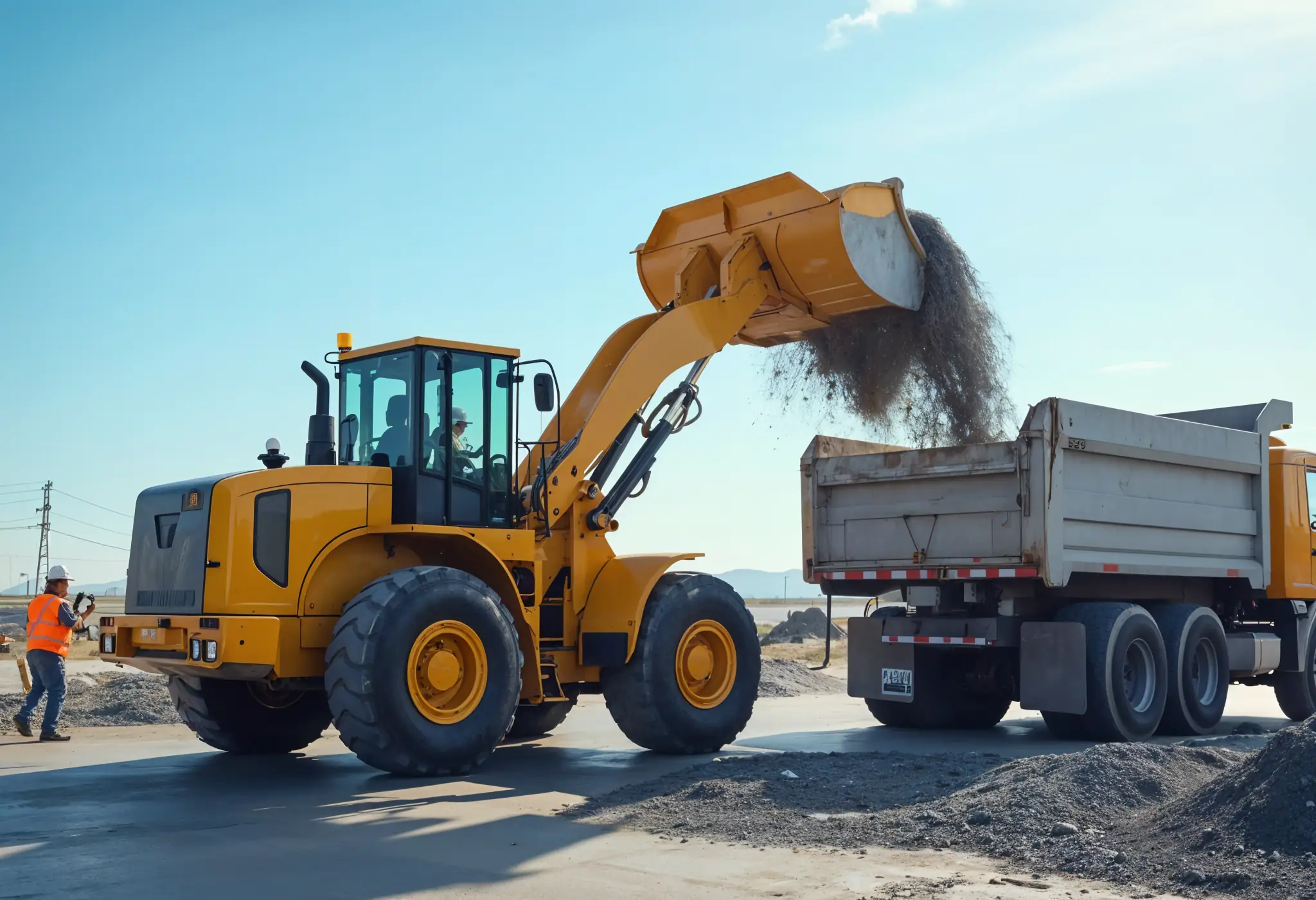
Which Construction Loader is Best for Your Project Needs?

4 Key Steps to Form a Construction Machinery QC Team

15 Essential Tips for Selecting the Perfect Crane for Construction

Maximize Savings: Multi-Purpose Construction Machinery for Lower Costs

Affordable Heavy Equipment Parts: A Sourcing Guide

Choosing the Right Road Construction Equipment: A Complete Guide

Motor Graders: Key Elements to Consider for Optimal Selection

A Detailed Guide to Choosing Excavators for Construction Work

Top Tips for Choosing Cranes for Construction Projects
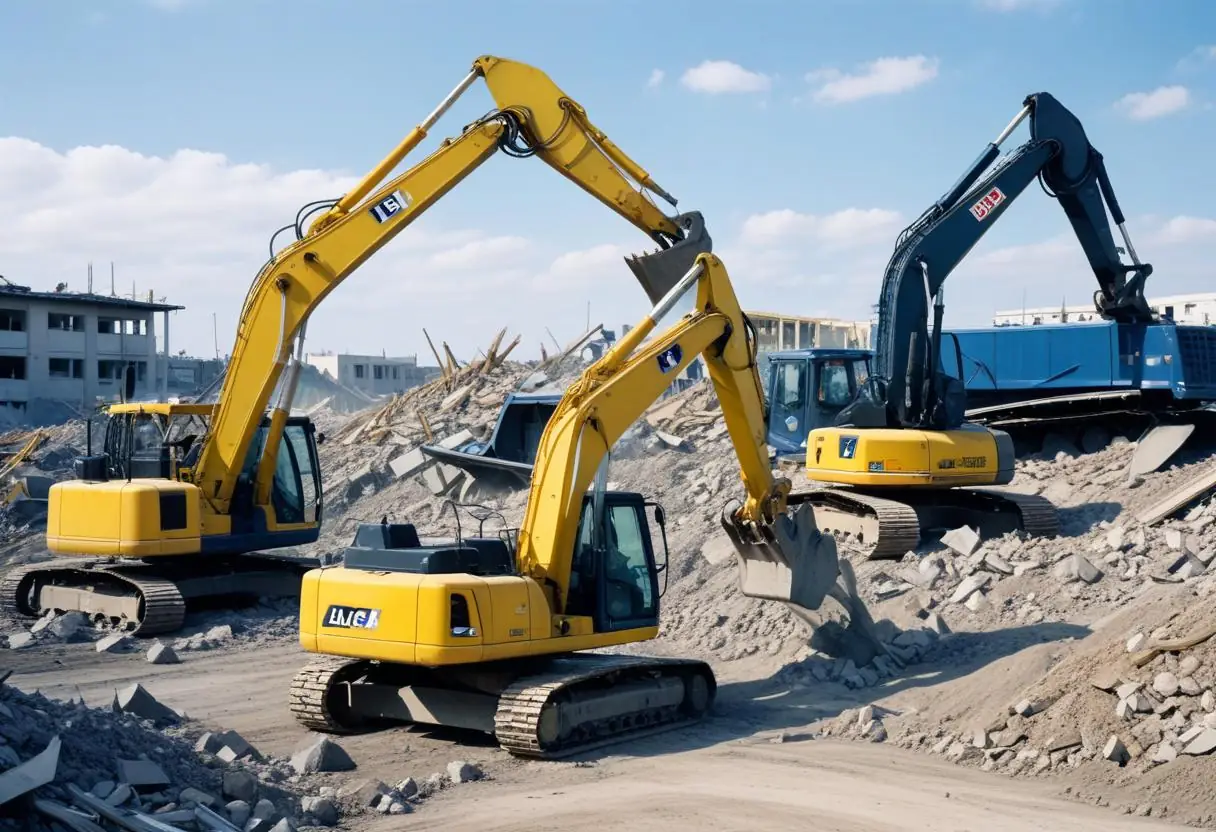
5 Top-Rated Demolition Machines for Construction Professionals

Expert Tips on Choosing Earthmoving Equipment for Large Projects
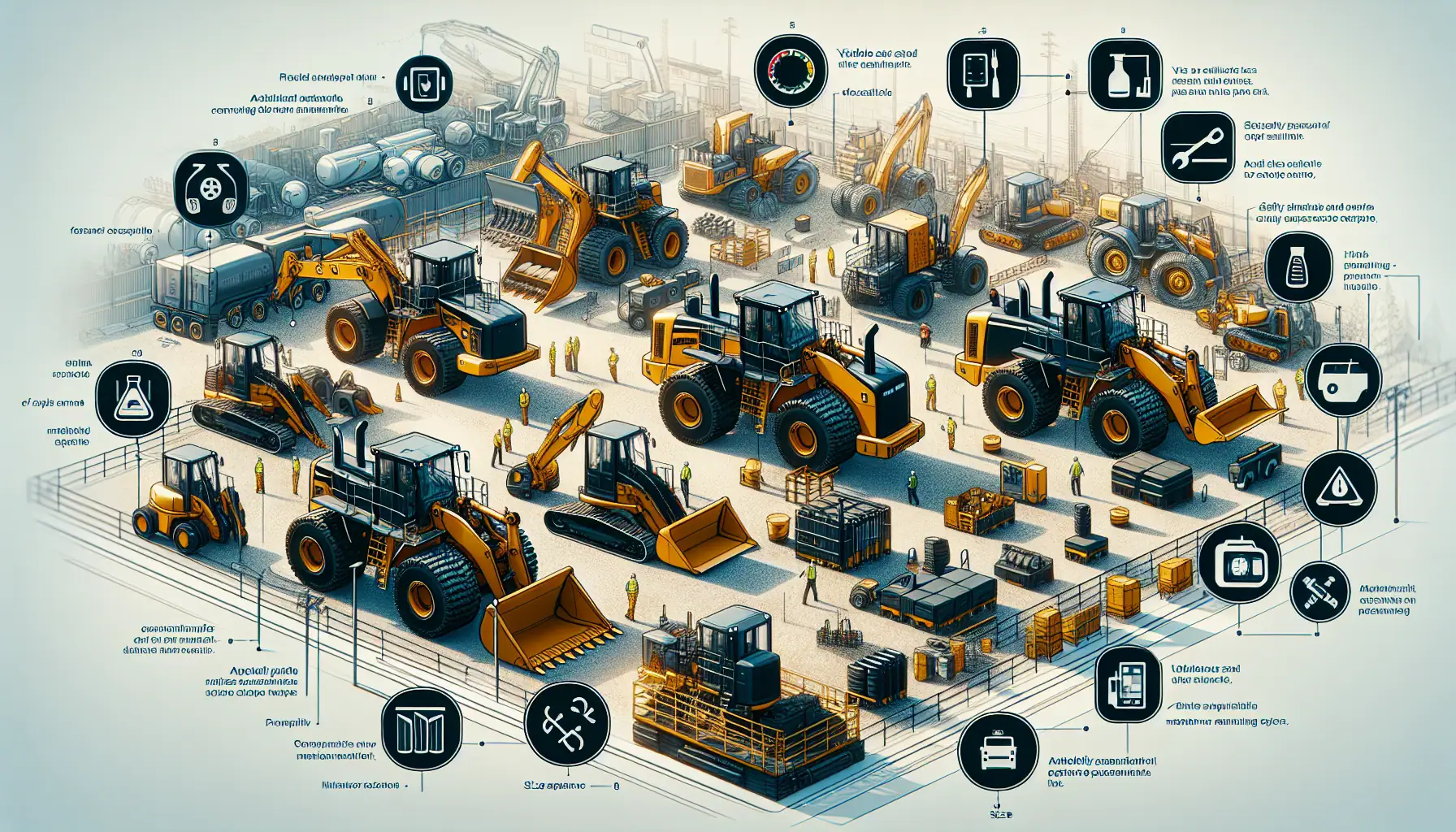
Top Functional Criteria for Selecting Heavy Construction Equipment

Construction Machinery: Detailed Guide to Equipment Specifications
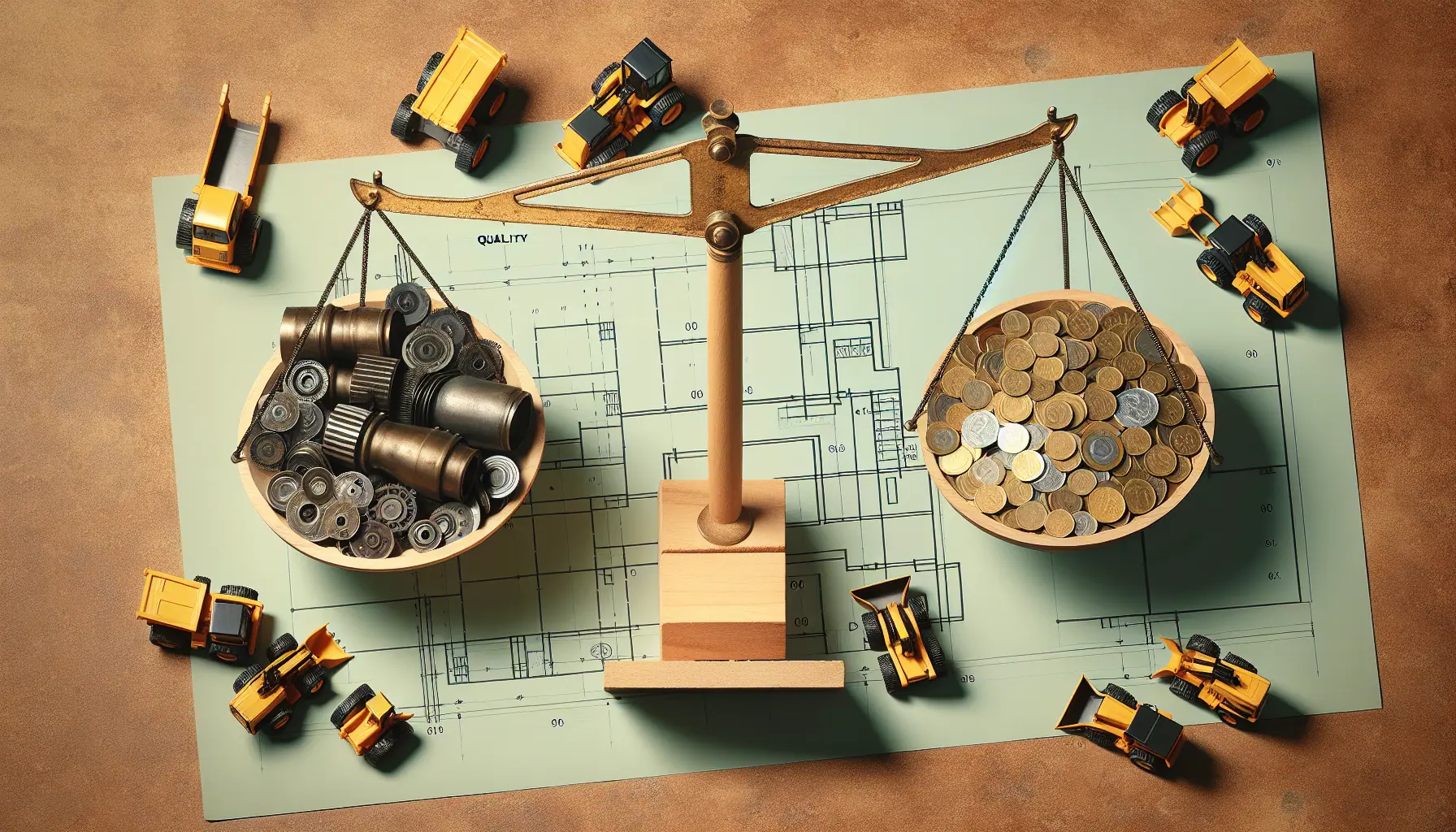
Heavy Machinery Prices: Key Factors in Cost and Quality Balance
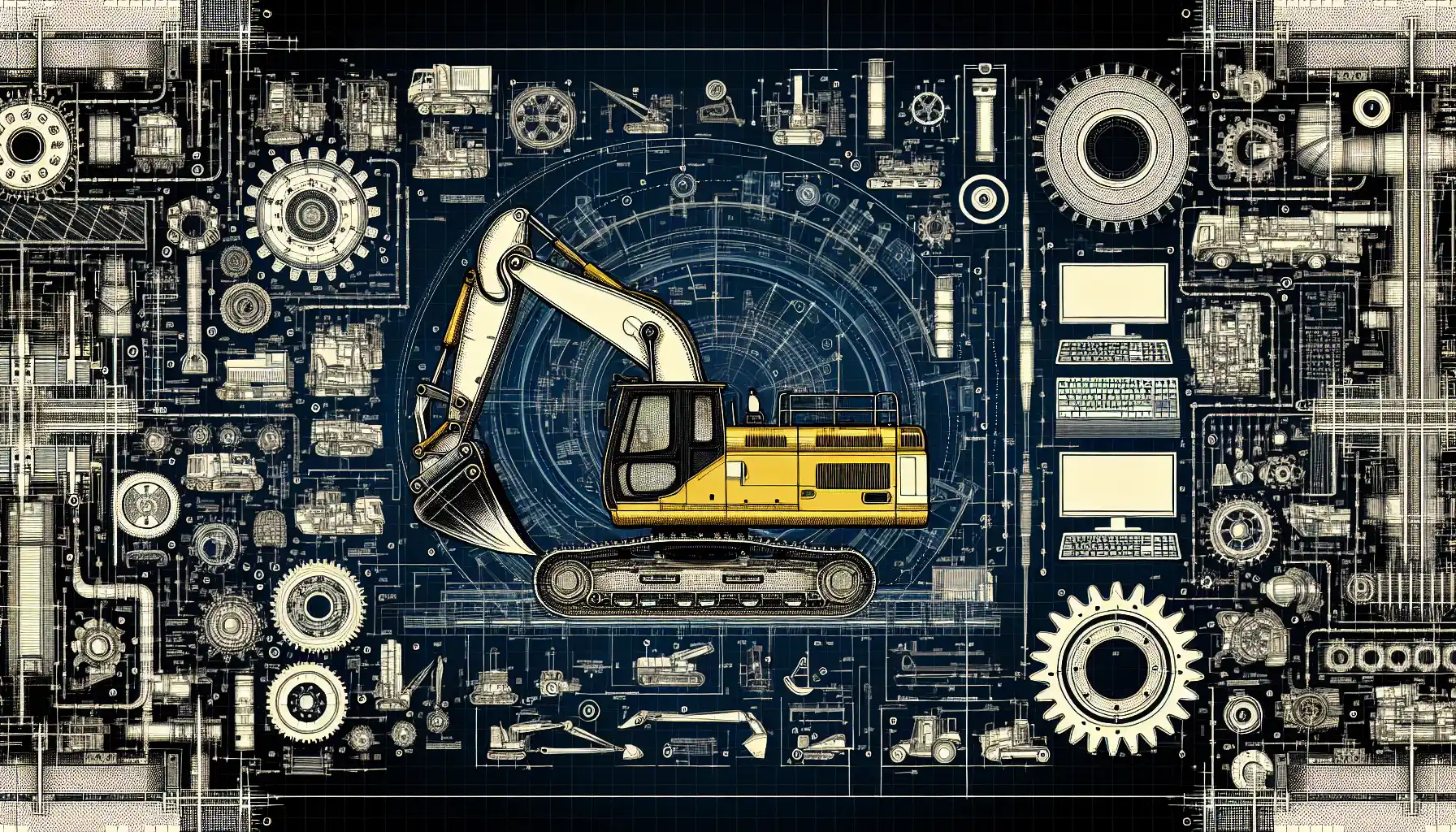
Best Construction Heavy Equipment Brands: Pros and Cons
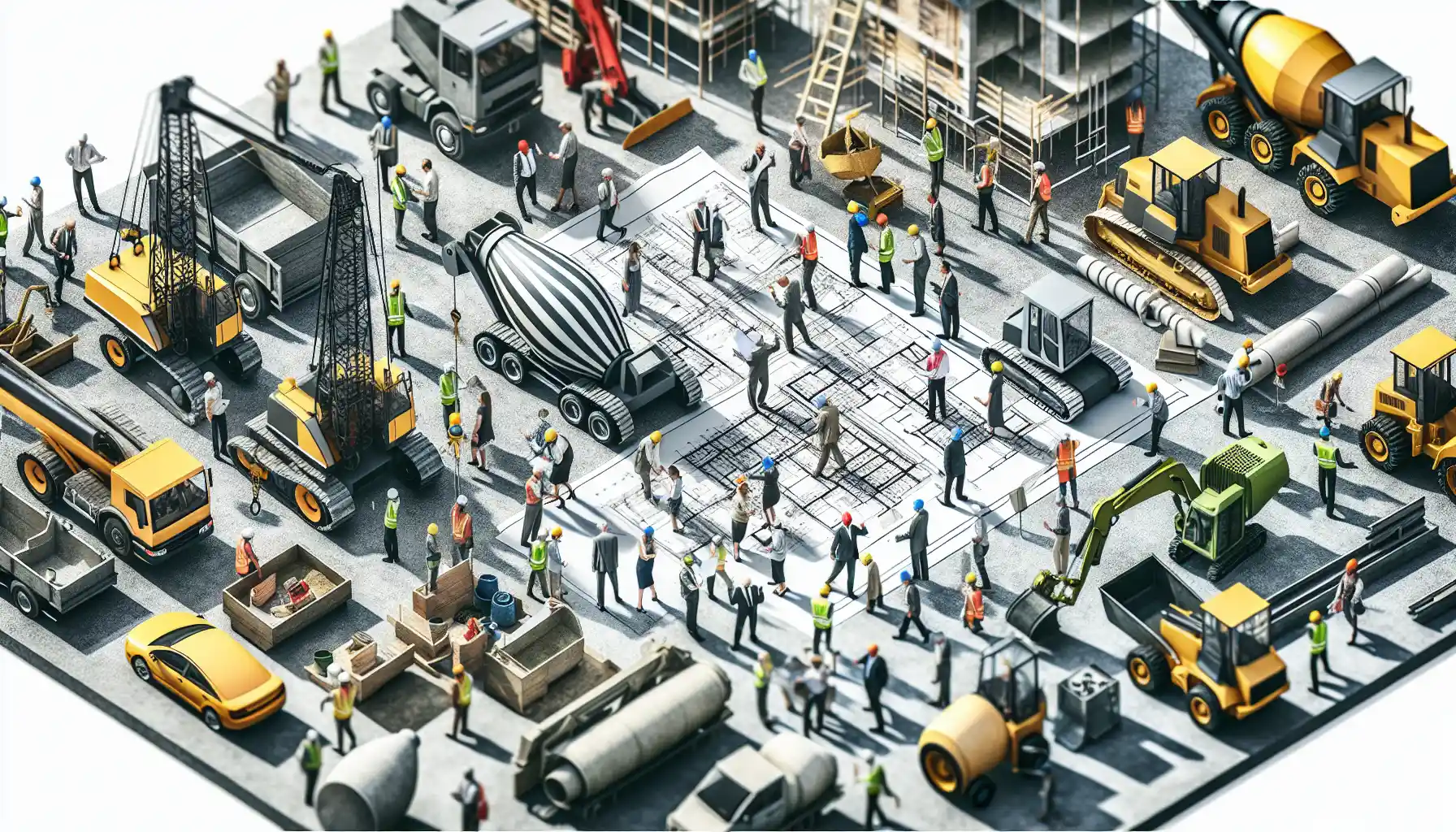
Construction Site Equipment: How to Determine Your Requirements
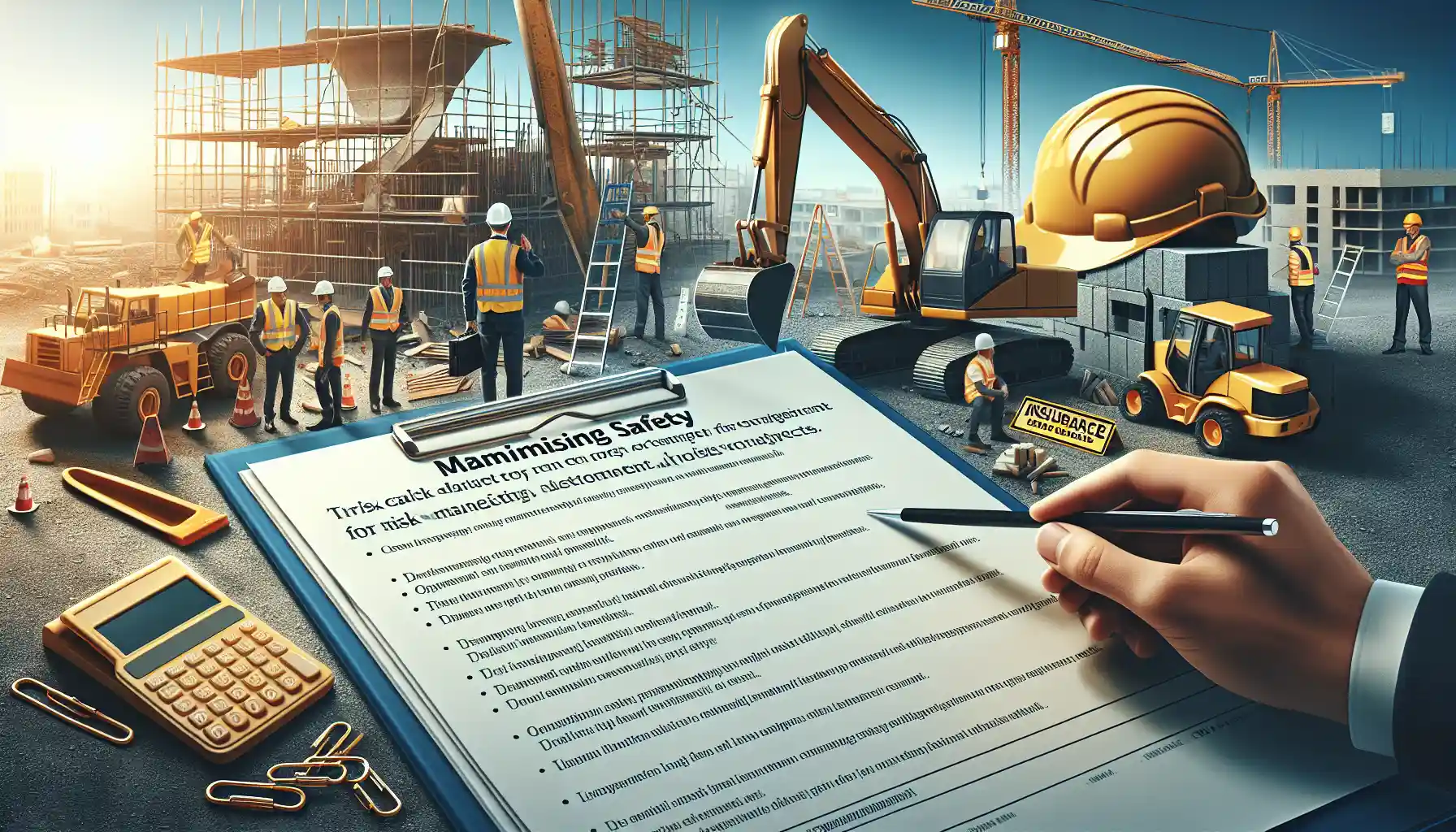
Maximizing Safety: Risk Management for Construction Projects

Innovations in Construction: Transforming Machinery and Equipment
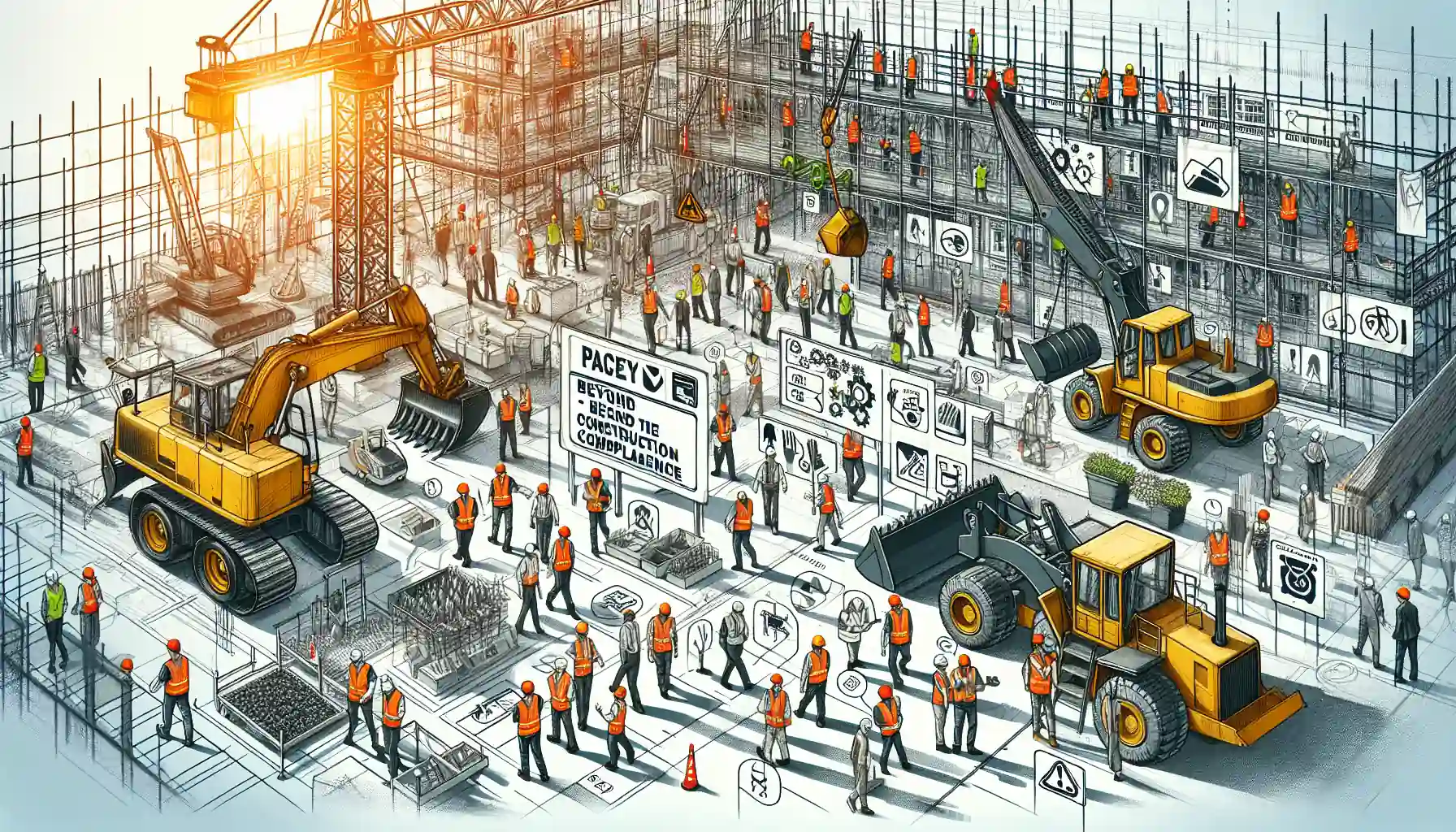
Heavy Equipment Safety: Beyond the Basics in Construction Compliance

The Essential Handbook for Construction Equipment Repair and Maintenance

How to Efficiently Source Oil and Gas Machinery Parts in NYC

Essential Guide to Sourcing Agriculture Equipment Parts
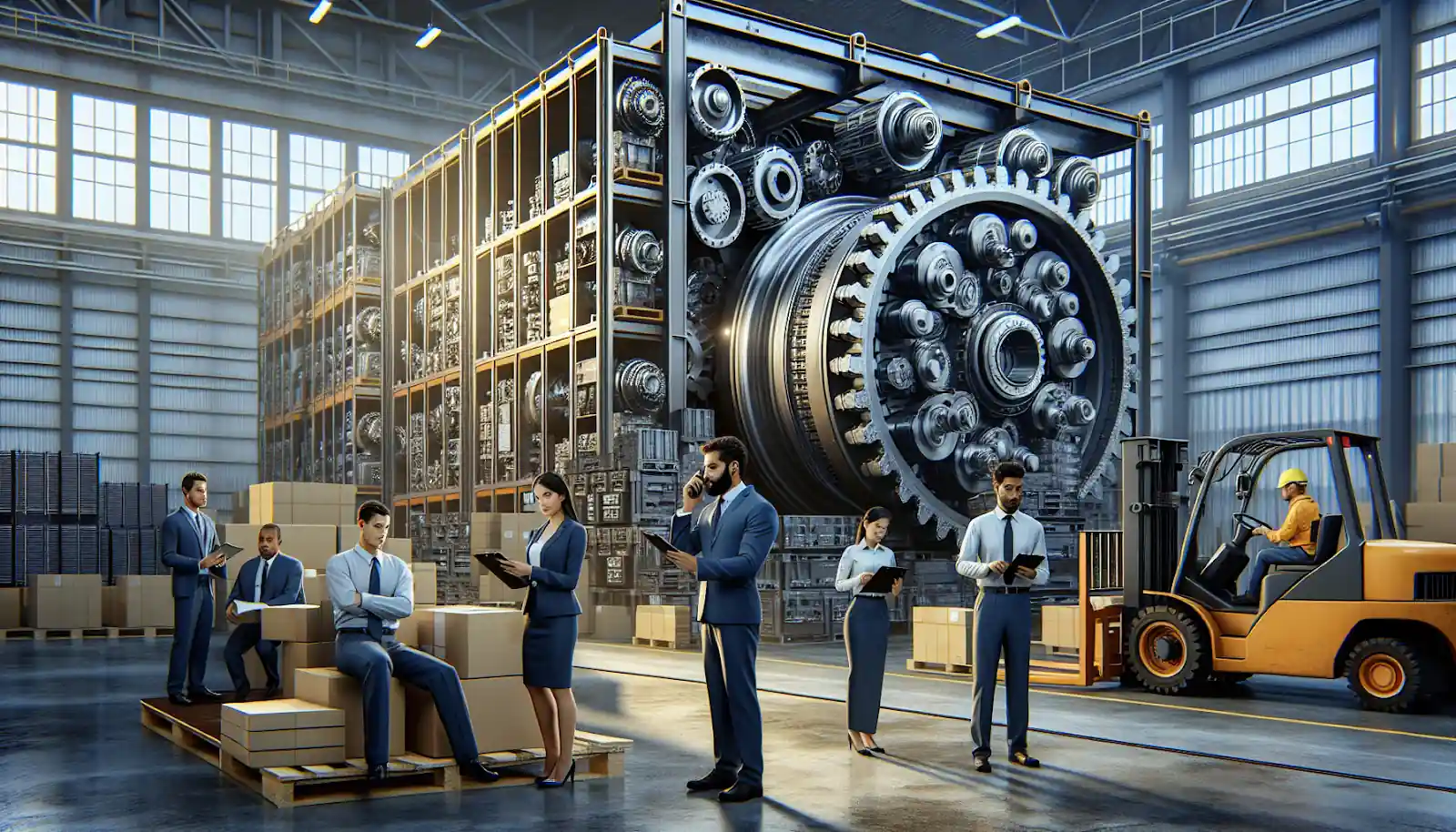
How to Source Mining Machinery Parts: Tips and Strategies
